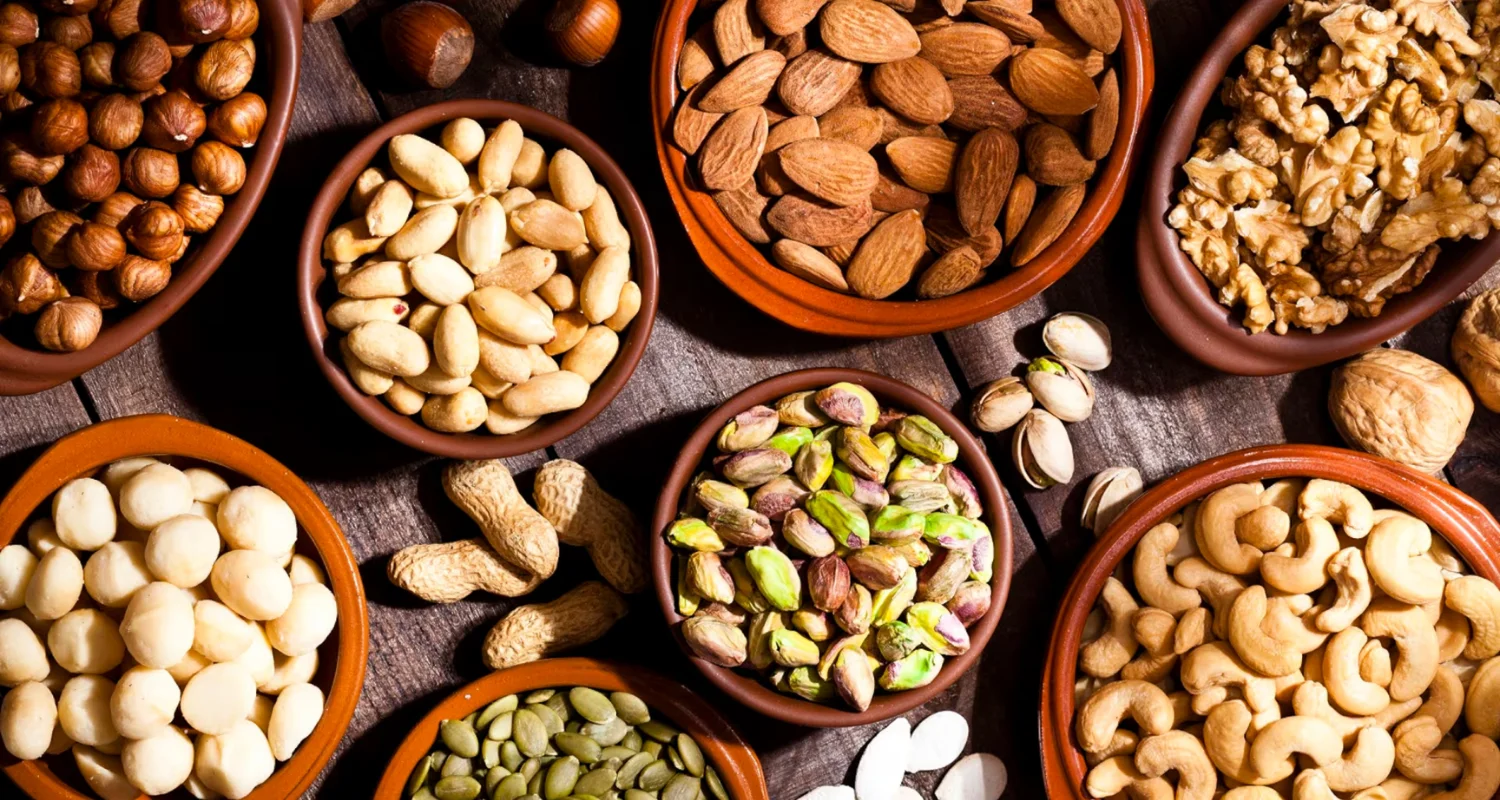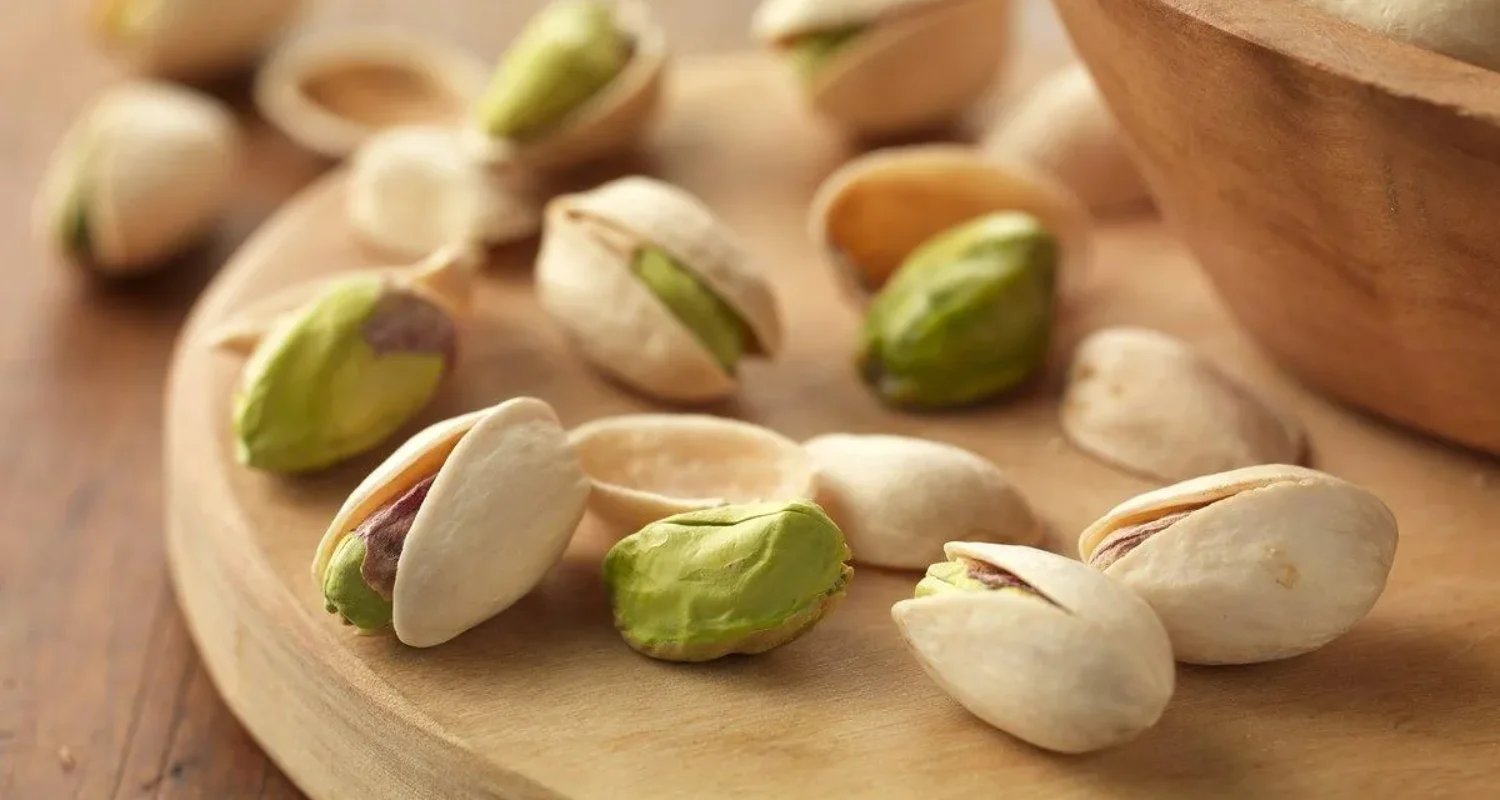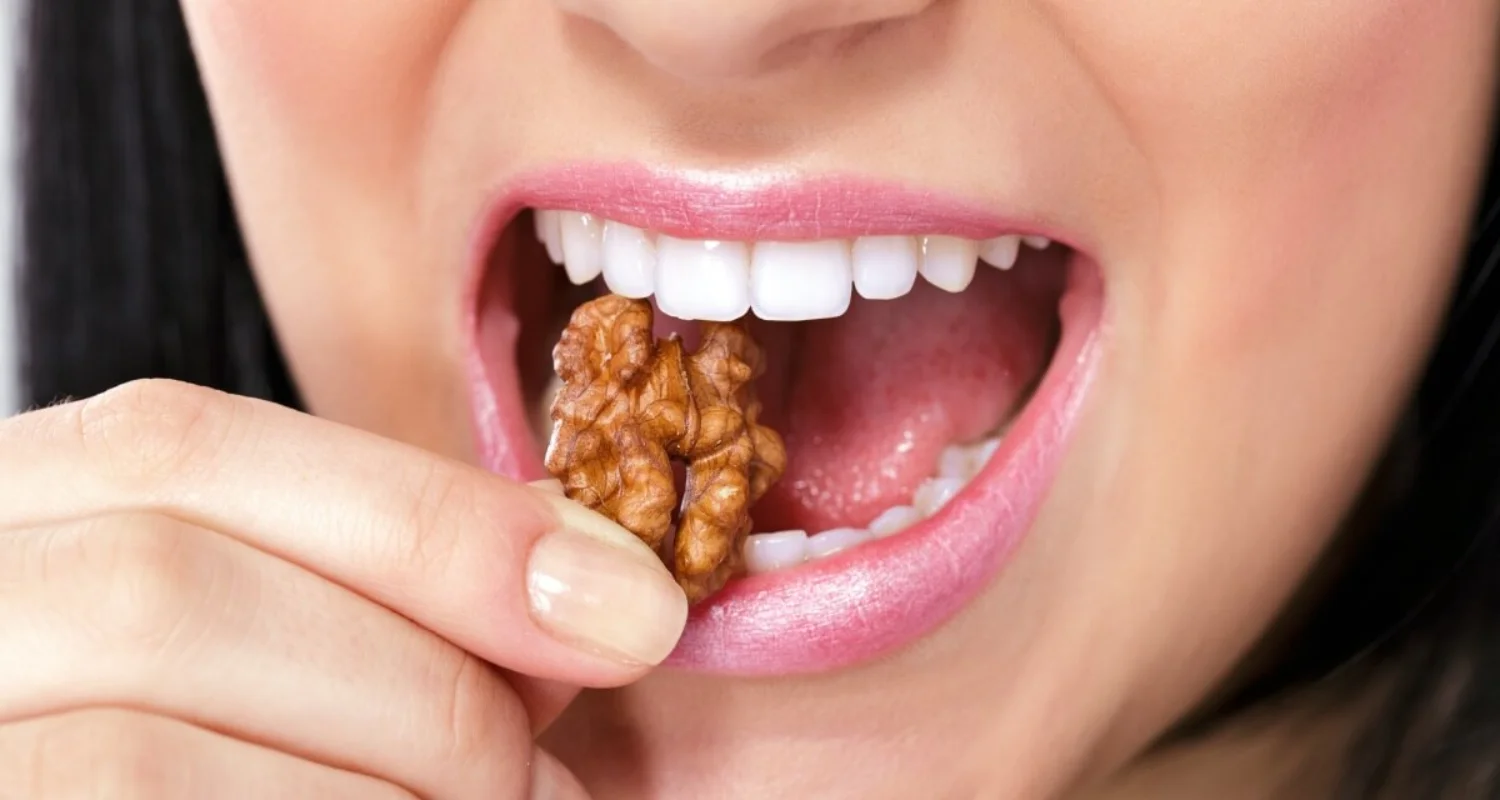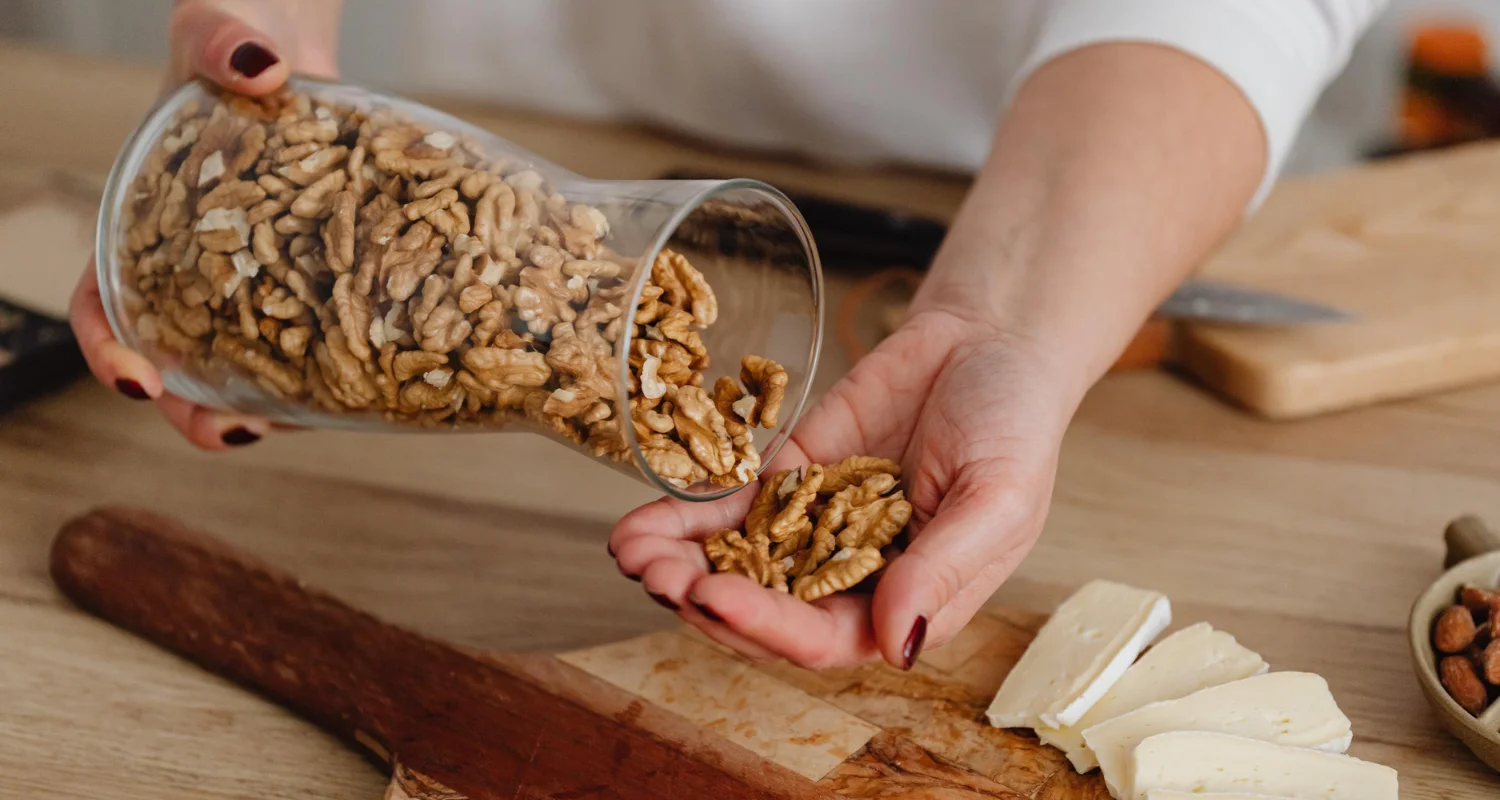Last Updated on: 13th December 2025, 07:02 am
Yes, nuts can be good for your teeth! They provide minerals like calcium and phosphorus to strengthen enamel, encourage saliva flow that helps clean teeth, and contain antioxidants that support gum health. Just be mindful of hard nuts that might crack teeth, and always enjoy them in moderation.
Do you enjoy snacking on nuts? Well, here is some good news for you! Did you know that nuts can help improve oral health? Eating the right nuts can benefit your dental health in a variety of ways. Some strengthen teeth, reduce bacteria, and promote gum health while others help scrub plaque off teeth and provide minerals that keep your teeth healthy and strong.
The food you consume can affect your smile just as much as regular brushing or flossing. Making nuts a regular part of your diet can contribute to a healthy, beautiful smile and well-protected teeth and gums. In this article, we will discuss the various effects of nuts on tooth health, including their benefits and drawbacks, the types to consume, and precautions to take while consuming them.
What types of nuts are good for your teeth?

Selecting foods that naturally combat bacteria, remove plaque, and strengthen enamel is an excellent way to maintain a healthy smile. Several types of nuts significantly contribute to good oral health. Here are a few examples:
1. Almonds
Almonds top our list due to their stellar nutritional profile. They are rich in calcium, which helps strengthen tooth enamel, and protein that builds strong jaw muscles. Additionally, they contain vitamin D, which works with calcium to protect tooth enamel, and phosphorus, which helps remineralize and rebuild teeth.
Antioxidants like vitamin E in almonds protect your gums from free radical damage. Chewing almonds also boosts salivary flow, helping to cleanse teeth.
2. Cashews
Buttery, sweet cashews are beneficial for dental health due to their rich mineral content. They contain phosphorus, which works with calcium to strengthen enamel, magnesium to prevent enamel decay, and copper to fight harmful oral bacteria. Additionally, the monounsaturated fats in cashews help scrub plaque off teeth.
3. Walnuts
Walnuts are rich in vitamin E that protects gums from bacterial infection, folic acid, reduces gum inflammation, and antioxidants like ellagic acid, which decreases cavity-causing bacteria in the mouth. Their rough, irregular texture also helps clean plaque and tartar off teeth.
4. Pistachios
Pistachios contain phytosterols, which have antibacterial effects against cavities and bad breath-causing microbes, and xanthophyll carotenoids, antioxidants that reduce gum inflammation. Their high fiber content helps clean debris between teeth, while phosphorus and calcium aid in remineralizing enamel.

5. Pecans
Pecans are rich in minerals like zinc, which prevents plaque buildup and gum disease, manganese that strengthens enamel, and vitamin E that protects against gum infections. Their antioxidant content also helps reduce bacteria in the mouth.
6. Hazelnuts
Hazelnuts, or filberts, provide calcium for stronger enamel, vitamin E to reduce oral inflammation and bacteria, and monounsaturated fats that help clean plaque off teeth. They also contain phosphorus and magnesium that aid in remineralizing tooth enamel.
You can also find toothpastes rich in vitamin E by clicking here.
7. Peanuts
Studies show that peanuts are rich in calcium and vitamin D, both of which promote healthy teeth. Whether you enjoy them as peanut butter sandwiches, salted and shelled, or unsalted, peanuts are a nutritious choice for maintaining dental health.
8. Brazil nuts
Brazil nuts are notable for their high selenium content, which neutralizes free radicals and prevents bad breath, with just one nut providing over 100% of your daily selenium intake. They also contain zinc to prevent cavities by controlling plaque, healthy fats that clean teeth while chewing, and protein and magnesium to strengthen teeth. Additionally, their coarse texture acts as a toothbrush against your enamel.
Note: While the above-mentioned nuts have proven to be beneficial for oral health, some varieties such as betel nuts can have detrimental effects. This includes missing or incomplete teeth, dental caries, and teeth discoloration. As a result, it is best to avoid consuming these nuts.
What are the benefits of eating nuts for your teeth?

Nuts are known to include a number of macro- and micronutrients that may aid to improve oral health. Here’s why they deserve to be a part of your diet:
● Strengthen tooth enamel
Calcium, phosphorus, vitamin D, and other nutrients that support the development and upkeep of strong dental enamel can be found in most nuts. Nuts with crunch encourage salivation. Saliva replenishes depleted portions of tooth enamel by remineralizing the areas that are lacking in minerals.
● Remove debris from the teeth
As you chew, the crunchy and abrasive texture of nuts helps remove plaque. This lessens bacteria and tartar accumulation. Additionally, nuts encourage saliva production to remove food particles from teeth.
● Rich source of antioxidants
Nuts contain antioxidants such as manganese, vitamin E, and selenium that help shield the mouth from inflammation and free radical damage. This aids in the prevention of cavities, gum disease, and other oral health problems.
● Refresh bad Breath
The polyphenols and other compounds in nuts inhibit microorganisms that cause odors. You can also find special toothpastes to eliminate bad breath by clicking here.
● Provide essential minerals
Nuts contain minerals like magnesium and zinc that are important for maintaining strong teeth and overall oral health.
● Support bone health
The calcium and phosphorus in nuts not only strengthen teeth but also support the bones that hold the teeth in place.

● Reduce risk of gum disease
The anti-inflammatory properties of nuts like walnuts helps reduce the risk of gum disease.
● Boost immune system
Nuts contain vitamins and minerals that support the immune system, helping the body fight oral infections.
● Maintain healthy pH levels
Nuts help maintain a healthy pH level in the mouth, reducing the risk of acid erosion on teeth.
Nuts on teeth health: what are the risks to watch out for?
Although nuts can help with maintaining oral health, there are several drawbacks. Their crisp texture might be harmful to teeth. You may be more vulnerable to a broken or cracked tooth if your enamel is weak.
Nuts can also crack into tiny, pointy fragments that could eventually become stuck between teeth. This may cause discomfort or even result in a dental emergency. Some nuts, such as cashews, have a mild acidity and if ingested in excess, can erode enamel.
In any of these cases, you can always use interdental brushes. They are very useful if a nut gets stuck between your teeth. Learn more here.
Striking a balance: what precautions to take?

Moderation is crucial to enjoying nuts without jeopardizing your tooth health. Try not to use too much effort when chewing nuts to avoid tooth fractures. Remember to consume water as it keeps your mouth moist and washes away any nut fragments.
It is recommended that individuals consume 1–2 oz nuts per day (42 g day−1) to reap their benefits. Regular flossing will take care of any trapped bits. When consuming acidic nuts like cashews, watch how much you eat and then wash it down with water to remove any residue.
While nuts can play a positive role in your dental health, it is crucial to remember that your overall dental care routine matters the most. Consuming a well-balanced diet, brushing and flossing your teeth twice daily, and scheduling regular dental checkups are all essential for preserving a healthy smile.
Frequently Asked Questions
Which nuts are a nightmare for dentists?
Nuts that are particularly hard, such as almonds, can be a nightmare for dentists because they have the potential to crack or chip teeth. Biting down on a hard nut can also damage existing dental work like fillings, crowns, or veneers. While nuts are generally healthy, the risk of dental injury comes from their hardness, especially when consumed in their raw form.
Why are nuts bad for your teeth?
Nuts themselves aren’t necessarily bad for your teeth, but their hardness can cause dental issues like cracked or broken teeth, particularly if you bite down on them incorrectly. Additionally, nuts coated in sugary substances, such as honey-roasted nuts, can contribute to tooth decay and cavities. The sugar can linger on your teeth, providing a breeding ground for bacteria that lead to decay.
How does diet and nutrition affect the health of our teeth?
Diet and nutrition play a crucial role in maintaining the health of your teeth and gums. A diet rich in calcium, phosphorus, and vitamins like vitamin D, C, and A helps strengthen tooth enamel and support gum health. Conversely, a diet high in sugar and acidic foods can lead to tooth decay, enamel erosion, and gum disease. Sticky or chewy foods can adhere to teeth, promoting bacterial growth and leading to cavities.
A balanced diet that includes plenty of fruits, vegetables, whole grains, lean proteins, and dairy products supports overall oral health. Drinking plenty of water, especially fluoridated water, helps wash away food particles and bacteria, further protecting your teeth.
Are nuts good for your teeth?
Yes, nuts can be good for your teeth when consumed appropriately. They are a good source of essential nutrients such as calcium, phosphorus, and healthy fats, all of which are beneficial for oral health. Nuts like almonds, walnuts, and cashews can help strengthen tooth enamel and stimulate saliva production, which is important for maintaining a healthy mouth. However, it’s important to be cautious with hard nuts that can potentially damage teeth. Eating nuts in moderation and being mindful of their hardness can help you enjoy their health benefits without risking dental injury.
Voice and Search (Q&A)
Are nuts good or bad for your teeth?
Most nuts are good for your teeth because they contain minerals like calcium, magnesium, and phosphorus that strengthen enamel. They also help remove plaque while chewing. However, very hard nuts or excessive consumption may pose risks like chipped teeth or enamel erosion.
What nuts are best for healthy gums and teeth?
Almonds, walnuts, pistachios, and Brazil nuts are among the best for oral health. They provide essential minerals, antioxidants, and healthy fats that protect gums, reduce inflammation, and clean teeth naturally.
How do nuts help clean your teeth naturally?
The crunchy texture of nuts acts like a natural scrub, helping remove plaque and food particles while you chew. They also stimulate saliva, which washes away bacteria and neutralizes acids in your mouth.
Share
References
1. Kara C. (Sept, 2021). Nutrition for Dental Health. Wholistic matters. https://wholisticmatters.com/nutrition-and-dental-health/
2. Palacios, C., Joshipura, K., & Willett, W. (2009). Nutrition and health: guidelines for dental practitioners. Oral diseases, 15(6), 369–381. https://doi.org/10.1111/j.1601-0825.2009.01571.x
3. Badrasawi, M. M. H., Hijjeh, N. H., Amer, R. S., Allan, R. M., & Altamimi, M. (2020). Nutrition Awareness and Oral Health among Dental Patients in Palestine: A Cross-Sectional Study. International journal of dentistry, 2020, 3472753. https://doi.org/10.1155/2020/3472753
4. Times Entertainment. (May, 2009). Go nuts for healthy teeth. https://timesofindia.indiatimes.com/life-style/health-fitness/health-news/go-nuts-for-healthy-teeth/articleshow/4520161.cms
5. Nuts for life. (Nov, 2022). Nuts and dentition. https://www.nutsforlife.com.au/resource/nuts-and-dentition/
6. CDHP Dental Health. (n/f). Which Nuts Are Best For Teeth? (A Complete Guide). https://www.cdhp.org/which-nuts-are-best-for-teeth-a-complete-guide/
- Nayibe Cubillos M. [Author]
Pharmaceutical Chemestry |Pharmaceutical Process Management | Pharmaceutical Care | Pharmaceutical Services Audit | Pharmaceutical Services Process Consulting | Content Project Manager | SEO Knowledge | Content Writer | Leadership | Scrum Master
View all posts
A healthcare writer with a solid background in pharmaceutical chemistry and a thorough understanding of Colombian regulatory processes and comprehensive sector management, she has significant experience coordinating and leading multidisciplina...















